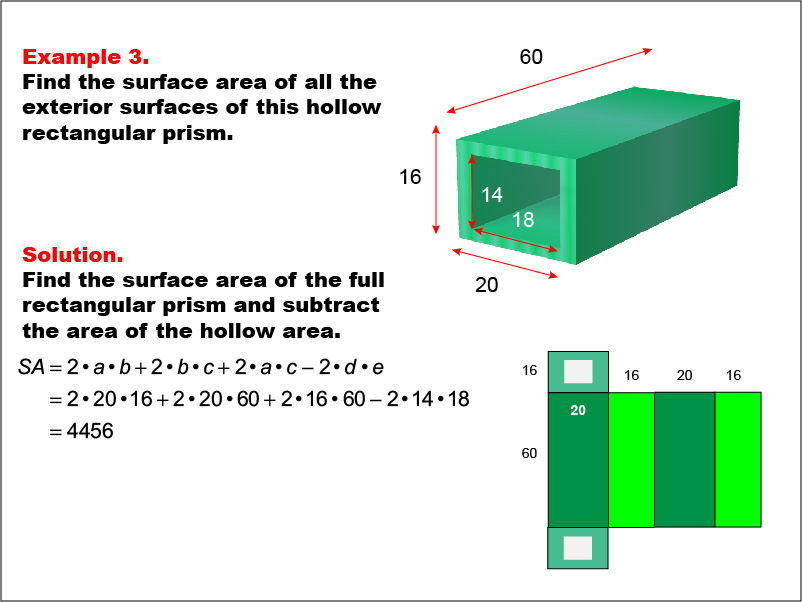
Display Title
Math Example--Area and Perimeter--Surface Area: Example 3
Display Title
Math Example--Area and Perimeter--Surface Area: Example 3

Topic
Surface Area
Description
This example demonstrates the calculation of surface area for a hollow rectangular prism. The outer dimensions are 60, 20, and 16 units, while the inner dimensions are 18 and 14 units. The surface area is determined by subtracting the area of the hollow region from the surface area of the full rectangular prism, resulting in a surface area of 4456 square units.
Understanding surface area of hollow objects is crucial in various fields, including engineering and architecture. This collection of examples helps teach the topic by introducing increasingly complex scenarios, allowing students to build on their knowledge of basic surface area calculations and apply it to more intricate shapes.
Exposure to multiple worked-out examples is essential for students to fully grasp the concept of surface area, especially for complex shapes. Each example reinforces core principles while introducing new challenges, helping students develop problem-solving skills and adaptability in geometric calculations.
Teacher's Script: Today, we're tackling a more complex surface area problem involving a hollow rectangular prism. Pay attention to how we adapt our previous knowledge to this new scenario. We'll calculate the surface area of the outer prism, then subtract the area of the opening. This approach will be useful when you encounter similar problems in real-world applications.
For a complete collection of math examples related to Surface Area click on this link: Math Examples: Surface Area Collection.
| Common Core Standards | CCSS.MATH.CONTENT.7.G.B.6 |
|---|---|
| Grade Range | 6 - 8 |
| Curriculum Nodes |
Geometry • Surface Area and Volume • Surface Area |
| Copyright Year | 2013 |
| Keywords | surface area |